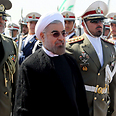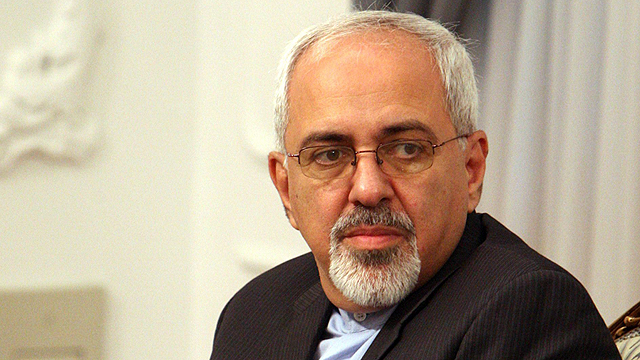
Iranian cyber warfare commander shot dead in suspected assassination
Mojtaba Ahmadi, Cyber War HQ commander, found with two bullets in heart north-west of Tehran, Daily Telegraph reports. Regime accused Israel in past of deaths of five nuclear scientists since 2007
Five Iranian nuclear scientists and the head of the country’s ballistic missile program have been killed since 2007. The regime has accused Israel’s external intelligence agency, the Mossad, of carrying out these assassinations.
Related stories:
- Netanyahu: Iran ups cyber attacks on Israeli computers
- Report: US traces cyber attack wave to Iran
- Iranian FM: Israel can't kill all our scientists
Ahmadi was last seen leaving his home for work on Saturday. He was later found with two bullets in the heart, according to Alborz, a website linked to the Revolutionary Guard Corps. “I could see two bullet wounds on his body and the extent of his injuries indicated that he had been assassinated from a close range with a pistol,” an eyewitness told the website.
The commander of the local police said that two people on a motorbike had been involved in the assassination.
According to the report, the Facebook page of the officers of the Cyber War Headquarters confirmed that Ahmadi had been one of their commander and posted messages of condolence. But Alborz users warned that the openly accessible book of condolence could harm Iran’s national security.
“Stop giving more information about him. The counter-revolutionaries will take advantage of his murder,” said one post. “It sounds like a hit job for a security officer of this importance”.
Subsequently, a statement from the Imam Hassan Mojtaba division of the Revolutionary Guard Corps said that Ahmadi’s death was being investigated. It warned against speculating “prematurely about the identity of those responsible for the killing”.
Western officials said the information was still being assessed, but previous deaths have been serious blows to Iran’s security forces. Tighter security measures around leading commanders and nuclear scientists have instilled a culture of fear in some of the most sensitive parts of the security establishment.
The last victim of a known assassination was Mostafa Ahmadi Roshan, a chemist who worked in the uranium enrichment plant at Natanz, who died when an explosive device blew up on his car in January last year.
Last Sunday, Iranian Foreign Minister Javad Zarif attacked Israel, saying it "cannot kill all of our scientists. They have unfortunately assassinated some of them and nobody has raised an eyebrow about it, which is a source of great concern for us that the world.
"Israel cn't kill all the scientists," Iran's FM Zarif (Photo: EPA)
"The United States which is supposed to be against terrorism is allowing terrorists to kill innocent Iranian scientists," Zarif said in an interview with ABC's "This Week with George Stephanopoulos."
The death of Ahmadi, a leading specialist in cyber defenses, could be an extension of this campaign of subterfuge, the Daily Telegraph said. Iran has been accused of carrying out a number of cyber attacks detected in the West. Shas hank Joshi, an expert at the Royal United Services Institute (Rusi), said this was seen as a lesser threat than the nuclear program.
“Iran’s cyber attacks on Israel and elsewhere in the region are a rising threat and a growing threat, but it hasn’t yet been seen as a major and sustained onslaught, so it would be pretty novel and significant to take this step in the field of cyber-warfare at this time,” he said.
The Revolutionary Guard has also been accused of lending its expertise to Syria’s regime, helping it to hack Western targets through a body known as the Syrian Electronic Army.
The killing of Ahmadi coincides with a new diplomatic effort by President Hassan Rohani, Iran’s newly elected leader. He has voiced the hope that Iran’s confrontation with America and the leading Western powers over its nuclear ambitions can be settled within months.
- Receive Ynetnews updates directly to your desktop











